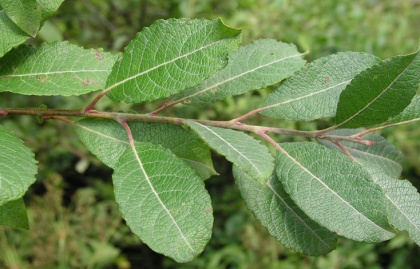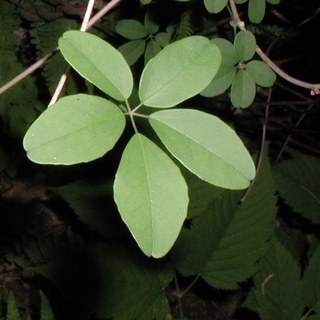Forestry/Leaf Types
Leaf Types is a subtopic of Forestry.
Leaves are parts of trees that help in the process of photosynthesis. Leaves come in many shapes, sizes, and arrangements. Different trees have different types of leaves.
Leaves can be needlelike, scalelike, or broad. If they are broad, they can be simple or compound.
Needlelike and Scalelike Leaves
| These are the leaves of coniferous trees. Needlelike trees are found mostly on pines and firs, while scalelike leaves are common on junipers and redcedars. |
Simple Leaves
Simple leaves are undivided leaves. There are two main types of simple leaves - opposite and alternate.
Opposite leaves are when two leaves meet at the same point on the branch. Alternate leaves are when the direction of the leaves alternate. See the diagrams above.
Compound Leaves
| Compound leaves are leaves that are divided into leaflets. Compound leaves can be alternate or opposite - but are also pinnately compound or palmately compound. Pinnately compound is when leaflets branch off from a rachis (the axis of the compound leaf). Palmately compound is when the leaflets all meet at one point. A good example of a compound leaf can be seen below. |
Leaf Shapes
Leaves can also be divided into several shapes, the most common being elliptical, ovate, obovate, lanceolate, and linear.
In Ovate leaves, the leaf takes the shape of an oval, with the broader end being near the base at the petiole. Examples include
In Obovate leaves, the leaf also takes the shape of an oval, however, the broader end is away from the petiole.






